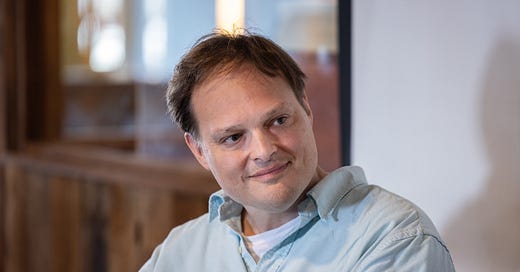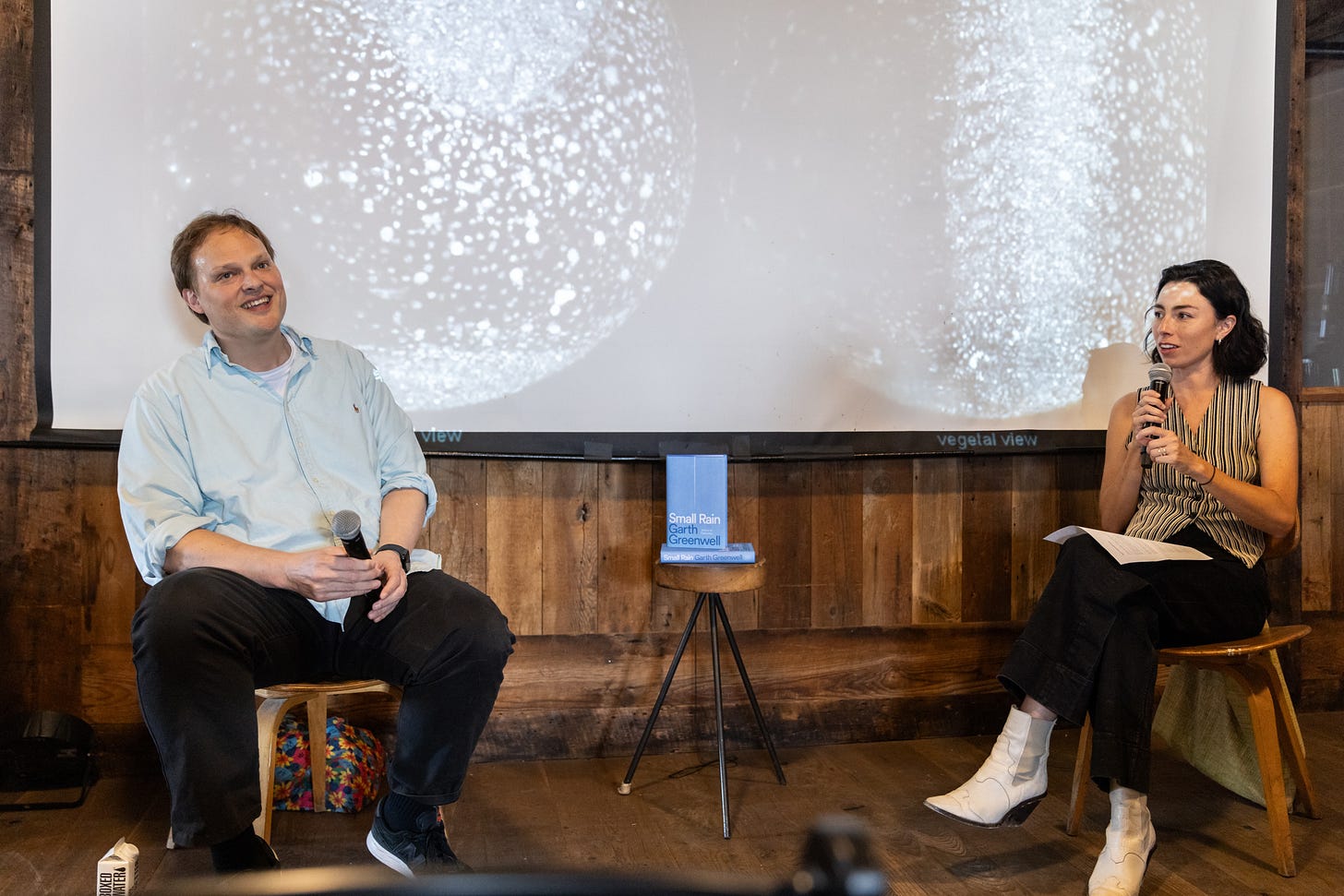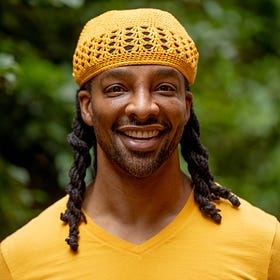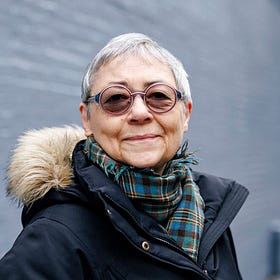Live! Garth Greenwell on the Ruthless Pursuit of an Aesthetic Life
"My whole aesthetic practice is predicated on— if something is too much, you do more of it."
Hello friends,
What a week. Like a lot of people I know, I’m being more careful than usual about my media diet, about the words and ideas I allow across the transom and into my brain right now. Permitted content includes these words by Thresholds alum and former guest host Mira Jacob, this essay by Thresholds alum
— and the audiobook of Ina Garten’s memoir, for the surprisingly racy 80s party stories, the butter, and the metric ton of anodyne charm.The other big exception is the conversation I’m so thrilled to be bringing you this week, featuring
. Garth and I spoke live at an event at Pioneer Works in October, and as I’ve listened back to it during our editing process, I’ve been struck by how this conversation is precisely what I needed to (re)hear right now.Garth started by talking about growing up in Kentucky in circumstances that were, for an artistically inclined gay boy, crushing— circumstances that led him to assume he wouldn’t survive much into adulthood. A music teacher happened to notice something in his singing voice and offered him lessons, opening up a path to a different world, one filled with opera, literature, art, aesthetics.
The majority of our conversation was about the way Garth pursued that path with total devotion, even a kind of ruthlessness, and what that ruthlessness has meant for him. What happens when you make art “the central activity” of a life? Not family, not religion, not place— art?
His most recent novel, Small Rain, is partly an exploration of whether that choice holds up under enormous strain. The narrator has a sudden, life-threatening medical event, which comes on as, in Garth’s words, an “annihilating pain that takes so much away, that sweeps so much away.” The narrator is left in the ICU considering the life he might be losing. With so much swept away, was an aesthetic life —in his own estimation— meaningful in the end?
We talked about how a person weighs those concerns: what will we decide, in the end, was the right measure of devotion to art when everything is being annihilated? And how does an artist determine what’s just… too much? Too much for them, too much for their reader?
Something I loved is that, when I posed this question about too-much-ness, Garth almost completely refused it. “My whole aesthetic practice is predicated on, if something is too much you do more of it,” he said. Here’s the full quote:
My whole aesthetic practice is predicated on— if something is too much, you do more of it. This absolutely ruthless pursuit of something consists in refusing to allow the question to intrude, Will anyone go along with me? I do feel a kind of absolute ruthlessness about aesthetic practice. If I catch sight of something that I’m after, I’m going to pursue it. I do believe that especially when you’re drafting, you only arrive anywhere by going absolutely as far as you can go. So I don’t ever think about this: Is it too much?
On an aesthetic level, this is exactly the mood I’m in. Ruthless pursuit! “Too much” as the bare minimum! Art as a moral act that also, as Garth says in the interview, refuses to pledge loyalty to any particular moral program! Going, in our work, absolutely as far as we can go.
I hope this conversation is as life-giving for you as it has been for me. And special thanks to our friends at Pioneer Works for partnering with us on this event.
Also mentioned:
Così Fan Tutte
The works of Benjamin Britton
Frank Bidart
Not mentioned, but a fun read: Garth’s essay “against relevance in art” for Harper’s. And you should subscribe to his Substack, To A Green Thought, too.
That’s all for now. We’ve got a new episode coming for you next week, and until then, take care.
-Jordan
Remix: Jericho Brown Mitigates Violence with Tenderness
"I realized I have to live the poems. I want to live like the work I'm making."
Sigrid Nunez Creeps Along, Line by Line
"I would tell them about a piece of advice I remembered hearing from Mark Strand: When something comes easy to you, pay attention to it, because that’s your gift."
Dorothea Lasky on Sweetness and Horror
"There’s something in horror that, by acknowledging the evil in the world, is actually very nurturing."









💓
So robust a conversation❤️